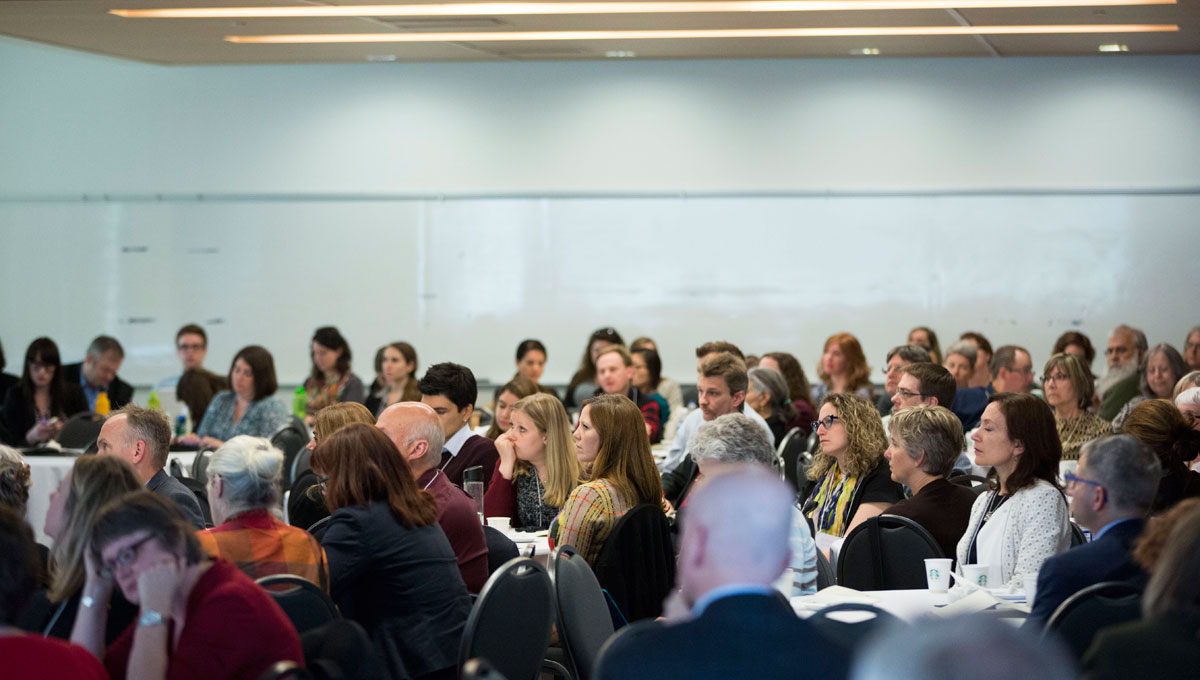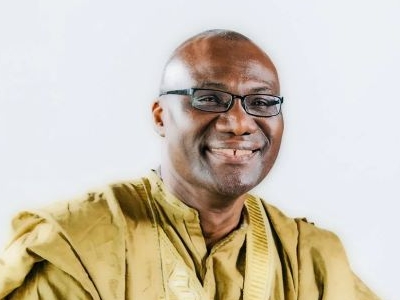Click here to read more about the conference and here to read an article published in University Affairs.
Paul Keen, associate dean of student and postdoc affairs for the Faculty of Graduate and Postdoctoral Affairs, organized the recent conference on the Future of the PhD in Humanities. The day after the conference, he wrote the following blog.
The dust is still settling from the Future of the PhD in the Humanities conference that was held here at Carleton on May 17-18, but already things are coming into focus. One thing was certain – it was an overwhelmingly popular event. We had had to close registration a few days before the conference when the delegate list topped 170. People came from all across the country and they came ready to work. The two-day conference was actually preceded by a one-day graduate student-only conference that brought together dozens of PhD students to discuss their priorities and concerns. This led into an energetic first session in the larger conference in which the students put the rest of us to work, brainstorming about ideas that could address their concerns. That set the tone for the conference as a whole.

Three themes dominated the conference. The first, which featured a panel of four exciting papers, wrestled with the question of how we can more effectively recognize and convey a sense of the public value of the humanities.
As Jim Cheetham (from Carleton’s Biology Department) pointed out, this discussion does not need to be about the differences between the humanities and sciences. Better to make common cause in a way that enhances our sense of the value of both.
Lesley Cormack (Dean of Arts at University of Alberta) offered an equally trenchant reminder – that however focused we need to be on doing a better job of preparing our students for non-academic career paths, we need to do so in ways that keep a strong sense of why we became interested in the humanities in the first place. If we don’t maintain a passionate sense of the unique and enduring value of the kinds of research and thinking that we do in the humanities as we engage with these other more practical tasks, then we can be in danger of throwing the intellectual baby out with the institutional bathwater.
The afternoon session on innovative doctoral programs from across the country (including a talk by the founder of UBC’s PhD Co-Op program) formed a useful bridge to the second major theme of the conference – the challenge of doing a better job of preparing our students for the wide range of non-academic career paths that we know the vast majority of them embark on, and of changing the culture within doctoral programs so that these various career paths are equally valued. As we learned, that challenge takes many forms.
The real hurdle is that we don’t know very much about where our graduates end up. A nation-wide program called TRaCE is currently working to change that by asking departments in universities across the country to track PhD graduates over the past 10 years, find out where they have ended up, and then engage them in a dialogue so that we can learn more about what our students need to know as they prepare themselves to enter the workforce. Humanities students graduate with highly valued skills but too often, it turns out, we do a poor job of clarifying what those skills are and training students to present these skills in ways that resonate with employers. There is a sea of change going on in this respect. Delegates (students and professors alike) were eager to hear and think more about how we can close this gap between the skills we’ve developed and our ability to translate these into meaningful jobs.
The final issue that came up repeatedly throughout the conference was the question of how we might reimagine the structure of our PhD programs, partly to make it possible to achieve reasonable completion times, and partly to prepare students for these larger objectives.
There was little consensus on practical solutions, but in some ways, that wasn’t really the point. Real change will need to come from the ground up within individual departments, but as the conference becomes a memory and delegates return to their own academic homes, there will be a real push to work with individual programs to wrestle with these questions. When they do, people will be able to do so safe in the assurance that they are in good company.
If we were united by one thing, it was a sense of the importance of getting on with this work, and by an understanding that it comes out of a deeply felt recognition of the importance of the humanities rather than a sense of crisis. And that may be the best result of all.
For more information about the conference and related articles, please visit carleton.ca/phdhums/




